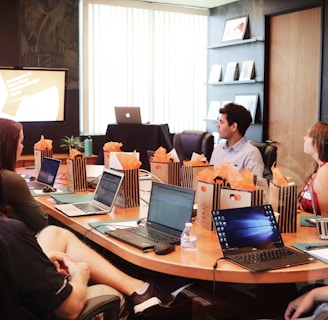How AI Will Replace Jobs—And Create Smarter Ones We Can’t Imagine Yet
A realistic yet visionary take on the job landscape post-2030.
Daksh Suthar
4/11/20253 min read


Redefining Work in a Post-2030 World
The buzz around artificial intelligence often oscillates between two extremes: awe and anxiety. While AI promises extraordinary productivity and convenience, it also evokes a fear deeply rooted in human psychology—the fear of becoming obsolete. But as we stand at the edge of 2030, we must ask: Is AI truly a job killer? Or is it a job transformer, ushering in a future where the nature of work itself evolves beyond recognition?
Let’s take a realistic yet visionary dive into how AI is reshaping the workforce and how the next generation of jobs may be unlike anything we’ve seen before.
The Reality: Yes, AI Will Replace Jobs
Let’s not sugarcoat it. AI will replace millions of jobs. Not in the far-flung future, but by 2030, we will already see irreversible changes:
💼 Jobs Most at Risk:
Routine-based roles: Data entry, bank tellers, assembly line workers, and simple customer service roles are on the chopping block.
Middle-skill white-collar work: Paralegals, insurance claim processors, and report analysts may see massive automation.
Retail and logistics: Automated checkouts, inventory management bots, and self-driving delivery vehicles are already in play.
“AI doesn’t get tired. It doesn’t take lunch breaks. And it doesn’t ask for raises.”
But it also doesn’t create, imagine, or feel.
This is where humanity still wins—and where the future lies.
The Transition: The Rise of Hybrid Intelligence
Rather than envisioning a dystopia of joblessness, we must see 2030–2040 as a transitional period—where human intelligence and artificial intelligence form a symbiotic bond.
🔄 Old Job Titles, New Skills
A teacher will become a learning experience designer, co-creating dynamic, AI-personalized curricula.
A doctor will evolve into a clinical intelligence specialist, making diagnostic decisions alongside AI-trained tools.
A farmer will become a precision agriculture analyst, using drones and sensors to optimize every square meter of land.
The Visionary Leap: Jobs We Can’t Imagine Yet
Now, let’s think forward. What kind of jobs might exist in the post-AI era? Here’s a peek into the unwritten job market of 2035 and beyond:
🌐 1. Digital Personality Designer
With AI capable of creating hyperrealistic digital assistants, influencers, or brand avatars, someone will need to design their personalities. This role will blend psychology, storytelling, and UX.
🧠 2. Human Bias Auditor
AI systems may perform with superhuman logic, but they’re still prone to bias—taught by flawed human data. These auditors will act as ethical AI gatekeepers.
🪐 3. Interplanetary Logistics Manager
As space tech evolves, someone will manage AI-controlled cargo between Earth and Mars. Sci-fi? Maybe. But Elon Musk’s deadlines say otherwise.
🔓 4. Synthetic Experience Architect
In a world where VR and AI converge, someone will craft deeply emotional, AI-generated experiences for therapy, entertainment, and learning.
🧬 5. Neuro-AI Interaction Specialist
The integration of brain-computer interfaces will create a need for experts who translate neural impulses into AI-readable language and vice versa.
What This Means for You
The future will not belong to those who fear AI, but to those who learn how to leverage it.
✅ Skills You Must Master:
Critical thinking over repetition
Creativity over compliance
Emotional intelligence over technical redundancy
AI fluency over traditional domain expertise
The Human Advantage in an AI World
What AI can’t do—yet and possibly never:
Show genuine empathy
Exercise moral judgment
Experience art or beauty
Think outside its programming
And those limitations are opportunities.
The post-2030 job market won’t reward those who cling to outdated roles. It will reward the adaptable, the curious, and the relentlessly creative.
Conclusion: AI Isn’t the End of Jobs—It’s the Beginning of Purpose
AI is not humanity’s competitor. It’s its catalyst.
We are entering an age where work isn’t just about earning—but about creating, innovating, and connecting on a scale never seen before. So yes, jobs as we know them are vanishing. But in their place, a smarter, purpose-driven era of work is emerging—one where you’re not just a cog in the machine.
You are the machine’s designer, master, and visionary.
The question is:
Will you evolve with it—or wait to be replaced by it?